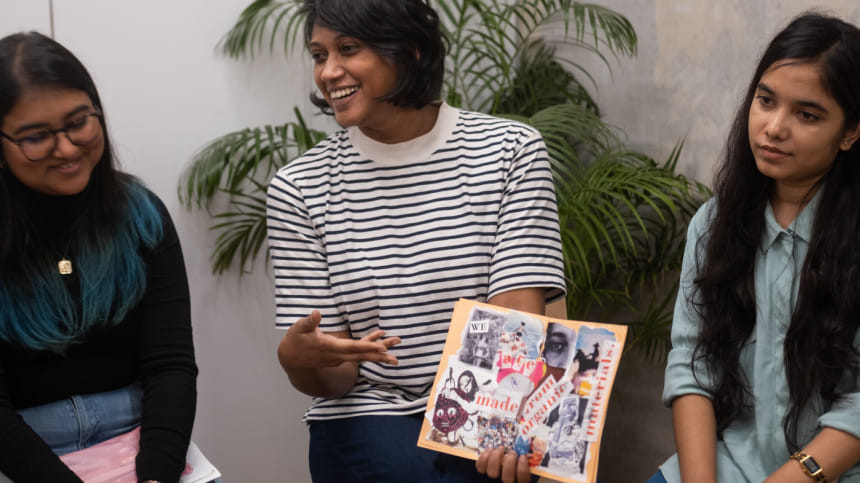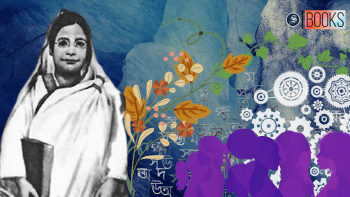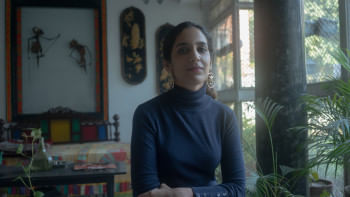Sister Library brings back ‘Sultana’s Dream’ and the chance to create one’s own utopia

On Saturday, December 17, Sister Library hosted a special event at Goethe-Institut to commemorate Rokeya Day.
Every year, Rokeya day is celebrated on December 9 to commemorate the birth and death anniversary of author, activist and educationist Rokeya Sakhawat Hossain, to honor her unparalleled contribution to gender equality and social reform.
The Sister Library event began with a reading of "Sultana's Dream", Begum Rokeya's iconic feminist short story, followed by a live zine making workshop based on the central themes in the short story.
This year the event was held in partnership with Goethe-Institut, HerStory foundation and Bonhishikha-unlearn gender.
Chenoa Chowdhury, Minaal Choudhury and Quazi Rokaiya Haque, members of the Bonhishikha gender equality organisation, performed as the reading's Elder Sisters.
The event was a diverse and inclusive gathering, with participation from people of different backgrounds, which made it possible for a rich and engaging discussion.
Zaima Hamid Zoa, one of the program's co-curators, said, "The reading was beautiful but the zine making workshop was powerful in so many ways. People from different academic, professional and social backgrounds could have meaningful discussions while making zines together."
Attendees of the zine-making workshop were divided into four groups based on the central themes of Begum Rokeya's story: arts, social justice, city planning and science & education. They were tasked with developing their zines—small, self-published magazines—in the two hours.
Zines can be used to express a wide range of creative and political ideas. With tools provided by the organisers, the participants took it upon themselves to create their own version of utopia with the zine. With the creative freedom, some chose to highlight a world where children with disability would enjoy the same rights as abled children, while some imagined a world where public transportations transformed communities. Others imagined a world with no stereotypical labels for women to be deemed valuable.
"The feminist and humanist ambitions of 1905 expressed in 'Sultana's Dream' are still out of reach. Today more than ever, Ladyland stands as an example of what clean, community oriented cities can be like. What was most impressive to me as I read the story this year, was the readiness of the Ladyland citizens to commit suicide if captured", said Katerina Don.
"I find their justice system radical and wise, there are two outcomes: forgiveness or banishment. They do not take it upon themselves to 'correct' behavior, which is so often a crime in itself" she said. .
The event ended with a small showcase of the zines created during the day.
"The reading of 'Sultana's Dream' was an eye-opener to the fact that feminism existed hundreds of years back. The zine-making was a fun activity and a good way to connect the participants to each other and challenge their abilities using limited time and resources to make the zines. It was an extremely valuable experience", shared Arnavaz Ghazi, a participant.

 For all latest news, follow The Daily Star's Google News channel.
For all latest news, follow The Daily Star's Google News channel. 







Comments